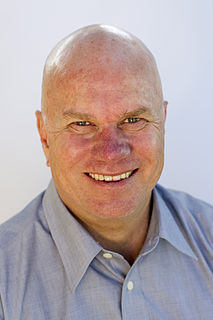A Quote by Zephyr Teachout
Facebook and Google are essentially an advertising duopoly, and we have almost no idea how their algorithms work.
Quote Topics
Related Quotes
I am the most concerned that we end up in a situation where your - everything is known about you and so therefore, not only Google, but Google, Facebook, Twitter - the whole set of companies - essentially knows all your weaknesses and therefore how to manipulate you in subtle ways in order to have you do things you might not otherwise do.
Facebook, when it began, like Google, was very resistant to advertising. They knew, like all - Mark Zuckerberg, like all good engineers, knew that advertising makes the product worse. But, you know, over time, they've been forced to increase the advertising load more and more and more. And the way they advertise is they - it's subtle but they know everything, you know, about everybody on the site.
Google likely never cared if Google+ 'won' as a competitor to Facebook (though if it did, that would have been a nice bonus). All that mattered, in the end, was whether Plus became the connective tissue between all of Google's formerly scattered services. And in a few short years, it's fair to say it has.
I think of Google as a set of overlapping things. It's a consumer platform, consumer phenomenon of which search is its fundamental activity, but there are many other things you can do than search... I think of Google as an advertising company who services the broader advertising industry in the ways that you know.

































